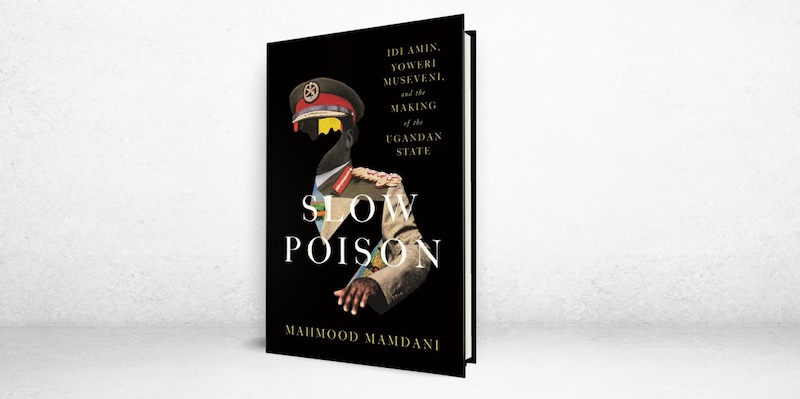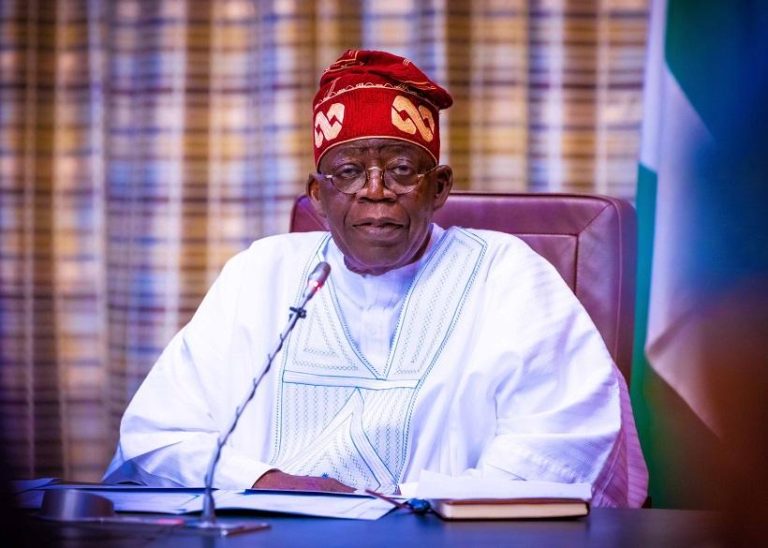
In his new book, Slow Poison: Idi Amin, Yoweri Museveni, and the Making of the Ugandan State, the celebrated Ugandan scholar Prof Mahmood Mamdani delivers one of the most searing critiques yet of President Yoweri Museveni’s four-decade rule.
His conclusion is stark: Museveni, he argues, has become worse than the dictator he once helped to overthrow. It is a startling claim, especially coming from a man who once stood among the fiercest critics of Idi Amin, the Ugandan strongman who expelled Asians, including Mamdani’s own family, in 1972.
But Mamdani’s new book, written with the calm authority of a scholar who has spent half a century studying African politics, dismantles the myth of Museveni as the “revolutionary liberator” who brought order after chaos. Instead, he portrays a president whose long rule has corroded the moral fabric of the nation he vowed to rebuild.
“An all-pervasive corruption and cynicism cloud the country like a fog,” Mamdani writes. “It will take no less than a generation for the country to come out of it, to nurture a political culture that can provide an effective antidote.”
FROM REVOLUTIONARY TO RULER
Mamdani’s perspective carries the weight of history. He first met Museveni in exile in Tanzania in 1973, when both were young idealists opposing Amin’s regime.
Back then, Museveni embodied a new generation of African leaders, educated, disciplined and principled. But as Mamdani traces in Slow Poison, that promise turned into something darker.
Amin, he writes, “called for a nation of Black millionaires but without seeking to become one himself.” Museveni, by contrast, “and his family proudly led the new mafuta mingi, accumulating wealth by means fair and foul.”
For Mamdani, the corruption of the Museveni era is not simply a matter of graft; it is existential. It has seeped into Uganda’s culture, reshaping the moral compass of an entire generation.
“Corruption,” he argues, “has become so rampant that the existing vocabulary can no longer capture it.” Mamdani also dismantles what he calls the international community’s “wilful blindness.”
Western governments, he writes, have long praised Museveni for presiding over one of Africa’s fastest-growing economies. The United States, in particular, he says, has played a pivotal role in sustaining his regime. But those figures, Mamdani insists, tell a distorted story.
“The growth of an enriched minority alongside an impoverished majority,” he writes, has become the hallmark of Museveni’s Uganda.
“Figures highlighted growth in the monetary economy, but not necessarily in people’s livelihoods.” The irony, he notes, is that Museveni himself has come to normalize corruption.
“There was nothing wrong with official corruption,” the president reportedly told a rally in 2022, “so long as its beneficiaries kept the loot within the country.”
For Mamdani, such statements mark the death of the revolutionary spirit that once defined Museveni’s movement.
“The fire-breathing young revolutionary,” he writes, “settled into old age respectability after nearly four decades in power. Theft would become society.”
Perhaps the most scathing section of Slow Poison is Mamdani’s analysis of how Museveni has reshaped Uganda’s politics along tribal lines. While Amin’s rule, for all its brutality, sought a form of national unity, Mamdani argues that Museveni has done the opposite, systematically fracturing the country’s social fabric.
“Where Amin racialized the nation, Museveni tribalized it,” Mamdani writes. “Amin saw the cohesiveness of the nation as a source of strength; Museveni saw cohesiveness as a potential threat.”
He accuses Museveni of “fragmenting the nation, dividing it into an increasing number of minorities, tribe by tribe,” reproducing the same divisions that colonial administrators once exploited.
“Like the colonial power,” Mamdani observes, “Museveni set out to create the Uganda of his imagination. The more the tribes, the merrier the ruler.”
THE SLOW POISON
For Mamdani, the tragedy of Uganda’s post-independence story is not only about individual leaders but about the slow poisoning of institutions and public morality.
The title of his book—Slow Poison—reflects how corruption, division and authoritarianism have crept into the bloodstream of the state, eroding the possibility of genuine democracy. Now based at Columbia University in New York, Mamdani has spent decades studying the patterns of power that shape postcolonial Africa.
Yet in Slow Poison, his gaze is deeply personal, anchored in his own country’s long and unfinished reckoning with its leaders. His verdict is unsparing. Amin, for all his brutality, was a man of excess and impulse; Museveni, he argues, represents something subtler but more enduring, a leader who institutionalized corruption and cloaked authoritarianism in the language of order and progress.
It is, Mamdani suggests, the difference between a quick death and a slow one. “Amin was a storm,” he writes.
“Museveni is the fog that lingers.” In the second movement of Slow Poison, Mahmood Mamdani does something few Ugandan intellectuals have dared with such fluency and proximity: he sets Idi Amin and Yoweri Museveni side by side, not as caricatures of brutality and order, but as architects of two very different political projects.
One, he suggests, was turbulent but finite. The other seeps everywhere. Mamdani’s claim is not simply that Museveni is “worse than Amin.” It’s that the political logic of Museveni’s long rule has hollowed out the very possibility of reform. He contrasts their sources of support, their uses of violence, and the stories they told about the state.
WHO BACKED WHOM
Amin’s core base, Mamdani argues, was civilian. His problem, disastrous as it was, lay in a divided army that repeatedly “wrought havoc especially against his opponents.” Museveni, by contrast, built no organic political base; he built clients.
He “translated his peace dividend into a license to rule without a time limit, promising peace to the population, but only so long as he ruled.”
“The price of continuing peace,” Mamdani writes, “would be political servitude.” He adds: “Museveni embraced violence as central to the politics of emancipation… From as early as his student days at the University of Dar es Salaam, Museveni wrote about violence with missionary fervor… Museveni, a military general, was made superintendent of police, and military units were integrated into the police.”
The result, he suggests, is not just the militarization of public life but the normalization of state coercion, even as the language used to describe it changes. Under Amin, people “disappeared.” Under Museveni, prominent figures were “poisoned.”
TRUTH COMMISSIONS—AND THE TRUTH THEY AVOIDED
Here, Mamdani draws a sharp line. “Amin appointed the postwar world’s first truth commission,” he notes—unusually, one that investigated his own regime’s “disappearances” and was “tasked with suggesting reforms that would address this problem.”
Museveni, by contrast, launched a truth commission at the start of his rule whose scope “was limited to the Amin regime.”
Despite public outcry over “illegally authorized violence by state forces,” Mamdani writes, “Museveni never appointed a commission to look into the use of such violence under his own regime, let alone acknowledge the problem publicly.”
Mamdani situates his critique in lived experience. He met Museveni in 1973 in Dar es Salaam and, later, engaged the National Resistance Movement and its precursor FRONASA “without fully joining them.”
That history gives weight to one intimate exchange he reproduces—a promise, he says, that still hangs in the air.
“Museveni,” I asked, since he was not yet president, I continued calling him, as before, by his last name, “what is going to be your main project as president?”
“The land question. Without a resolution of mailo land [referring to square miles of land granted in 1900 by the conquering British to their Protestant Baganda allies], we will not be able to tackle the question of development in the country.”
“And how do you propose to do this?” “Well,” Museveni replied, “we have to learn from South Korea. The mailo landlords are too powerful for us to confiscate their land. We will have to compensate them, in other words, to buy the land.”
“Even after thirty-six years in office,” Mamdani concludes, “Museveni has been unable to realize these ambitions.” He recalls being tapped, but he declined in 1986 to become Inspector General of Government. The refusal foreshadows his broader judgment: that a promise of “fundamental change” hardened into a policy of “no change.”
FROM ‘FUNDAMENTAL CHANGE’ TO ‘AT LEAST WE CAN NOW SLEEP’
“The NRM had come to power in 1986 with Museveni’s promise to effect ‘fundamental change’; nearly a decade later, with the adoption of the new Constitution in 1995, the same president turned around to promise ‘no change’ as the new Constitution returned the country to a system of multiparty elections,” Mamdani writes.
“On its own admission, the NRM had reached the end of the road; its vision no longer transformative, its promise was limited to the realization of security. In a phrase that could be heard from every official lip, the president down, was the slogan ‘at least we can now sleep.’
Its energies would henceforth be invested in preventing change, never mind that no one in history has ever succeeded to achieve this objective.” Preventing change, he argues, required international cover.
By the late 1990s, as corruption in Uganda became “part of global news,” a “honeymoon seemed to blossom” with Western capitals.
“President Bill Clinton praised President Museveni as one of a ‘new generation’ of African presidents who were willing to bring ‘African solutions to African problems.’
When he landed in Uganda, Clinton no doubt had two things uppermost in his mind: Uganda had followed the ‘conditionalities’ laid down by the Washington Consensus; and Uganda was willing to intervene militarily in African countries where domestic considerations prevented the United States from doing so…”
For Mamdani, the bargain was clear: external legitimacy in exchange for military utility.
“There was no limit to the price the president was willing to pay to keep his hold on power,” he writes. When Ugandan troops weren’t deployed to Congo, South Sudan, the Central African Republic, or Somalia, Kampala turned inward. The state framed the Allied Democratic Forces as the internal face of global terror.
“The LRA had been a useful rebel force,” he writes. Once it disappeared, and civilians returned home, “the government was on the lookout for another useful rebel movement on which to pin the ‘terrorist’ label and thus turn it into a mobilizing tool for global support in Uganda’s own ‘war on terror.’
By the mid-2000s, however, the ADF had been practically defeated. Yet, the government stepped up the war against the ADF… Unlike the LRA, which was Christian fundamentalist in outlook, the ADF could easily be labeled ‘Islamist terrorists.’”
This collaboration, Mamdani argues, “admitted Museveni among the ranks of the few who enjoyed impunity and protection from the United States— something enjoyed first and foremost by Israel.”
The contrast returns to first principles. “It took Amin less than a year to realize that he lacked the means to exercise independence… And Museveni faced more of a financial than a military impasse in 1986… Whereas Amin failed in his endeavor, he could not be accused of failing to try. Museveni dropped the project as a romantic dream of a youth long spent… Unlike Amin, who refused to govern as a grateful stooge, Museveni comfortably settled into that role.”
It is a blistering assessment, made more provocative because of its author. Mamdani is not a partisan polemicist. He is a scholar who has taught from Dar es Salaam to Makerere to Cape Town to New York, who has known these leaders, supported parts of their struggles, and kept receipts.
WHY THIS ARGUMENT MATTERS NOW
Mamdani is not merely grading two presidents. He is tracing how power reshapes a state’s moral center—how coercion becomes administrative routine, how “peace” becomes a contract of obedience, how international applause can mute domestic outrage. The implication is uncomfortable: if corruption and coercion are the fog, they don’t lift on their own.
His closing comparison lingers. Amin’s violence was spectacular, catastrophic—and short. Museveni’s achievement, Mamdani suggests, is different. It is the transformation of emergency into normalcy; the slow poisoning of institutions until a promise like land reform can be made, remembered, and still deferred for “thirty-six years.”
bakerbatte@gmail.com



